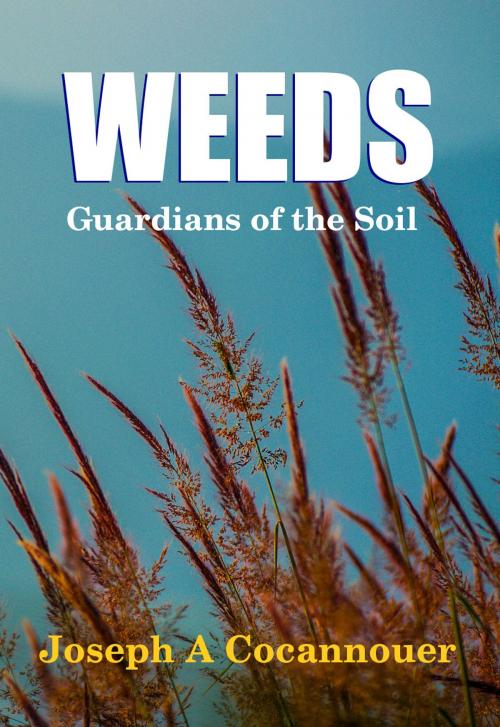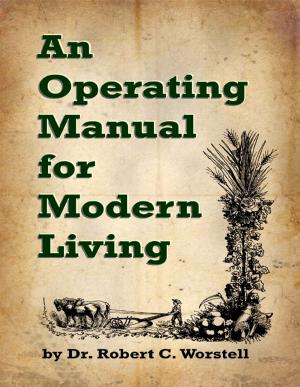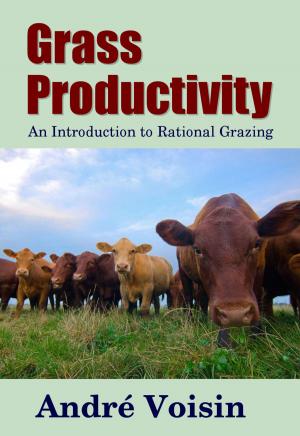Weeds - Guardians of the Soil
Nonfiction, Science & Nature, Nature, Plant Life, Plants, Science, Biological Sciences, Ecology, Environment| Author: | Midwest Journal Press, Joseph A. Cocannouer, Dr. Robert C. Worstell | ISBN: | 9781312938182 |
| Publisher: | Midwest Journal Press | Publication: | February 28, 2015 |
| Imprint: | Language: | English |
| Author: | Midwest Journal Press, Joseph A. Cocannouer, Dr. Robert C. Worstell |
| ISBN: | 9781312938182 |
| Publisher: | Midwest Journal Press |
| Publication: | February 28, 2015 |
| Imprint: | |
| Language: | English |
SO FAR as we are able to determine this is the first book to be written in praise of weeds. According to Joseph Cocannouer, weeds -- the common ragweeds, pigweeds, pusleys and nettles, to mention four -- perform the following valuable services among others:
1. They bring minerals, especially those which have been depleted, up from the subsoil to the topsoil and make them available to crops. This is particularly important with regard to trace elements.
2.When used in crop rotation they break up hardpans and allow subsequent crop roots to feed deeply.
3. They fiberize and condition the soil and provide a good environment for the minute but important animal and plant life that make any soil productive.
4. They are good indicators of soil condition, both as to variety of weed present and to condition of the individual plant. Certain weeds appear when certain deficiencies occur.
5. Weeds are deep divers and feeders and through soil capillarity they enable the less hardy, surface feeding crops to withstand drought better than the crop alone could.
6. As companion crops they enable our domesticated plants to get their roots to otherwise unavailable food.
7. Weeds store up minerals and nutrients that would be washed, blown or leached away from bare ground and keep them readily available.
8. Weeds make good eating -- for man as well as for livestock. The publisher can vouch for the superiority of lamb's quarter -- a favorite of the author -- over any other domestic form of spinach or cooked greens.
No, Professor Cocannouer does not believe that weeds should be allowed to go rampant and take over our farms and gardens. The function of this book, a pioneering work, is to demonstrate how the controlled use of weeds can be sound ecology, good conservation and a boon to the average farmer or gardener.
- - - -
This is the first book to be written in praise of weeds. According to Joseph Cocannouer, weeds perform the following valuable services among others:
1. They bring minerals and make them available to crops.
2. When used in crop rotation they crop roots to feed deeply.
3. They fiberize and condition the soil make any soil productive.
4. They are good indicators of soil condition.
5. Weeds are deep divers and feeders they enable crops to withstand drought better.
6. As companion crops they enable our domesticated plants to get unavailable food.
7. Weeds store up minerals and nutrients and keep them readily available.
8. Weeds make good eating.
No, Professor Cocannouer does not believe that weeds should be allowed to go rampant and take over our farms and gardens. The function of this book is to demonstrate how the controlled use of weeds can be sound ecology, good conservation and a boon to the average farmer or gardener.
(From the Introduction)
Get Your Copy Today!
SO FAR as we are able to determine this is the first book to be written in praise of weeds. According to Joseph Cocannouer, weeds -- the common ragweeds, pigweeds, pusleys and nettles, to mention four -- perform the following valuable services among others:
1. They bring minerals, especially those which have been depleted, up from the subsoil to the topsoil and make them available to crops. This is particularly important with regard to trace elements.
2.When used in crop rotation they break up hardpans and allow subsequent crop roots to feed deeply.
3. They fiberize and condition the soil and provide a good environment for the minute but important animal and plant life that make any soil productive.
4. They are good indicators of soil condition, both as to variety of weed present and to condition of the individual plant. Certain weeds appear when certain deficiencies occur.
5. Weeds are deep divers and feeders and through soil capillarity they enable the less hardy, surface feeding crops to withstand drought better than the crop alone could.
6. As companion crops they enable our domesticated plants to get their roots to otherwise unavailable food.
7. Weeds store up minerals and nutrients that would be washed, blown or leached away from bare ground and keep them readily available.
8. Weeds make good eating -- for man as well as for livestock. The publisher can vouch for the superiority of lamb's quarter -- a favorite of the author -- over any other domestic form of spinach or cooked greens.
No, Professor Cocannouer does not believe that weeds should be allowed to go rampant and take over our farms and gardens. The function of this book, a pioneering work, is to demonstrate how the controlled use of weeds can be sound ecology, good conservation and a boon to the average farmer or gardener.
- - - -
This is the first book to be written in praise of weeds. According to Joseph Cocannouer, weeds perform the following valuable services among others:
1. They bring minerals and make them available to crops.
2. When used in crop rotation they crop roots to feed deeply.
3. They fiberize and condition the soil make any soil productive.
4. They are good indicators of soil condition.
5. Weeds are deep divers and feeders they enable crops to withstand drought better.
6. As companion crops they enable our domesticated plants to get unavailable food.
7. Weeds store up minerals and nutrients and keep them readily available.
8. Weeds make good eating.
No, Professor Cocannouer does not believe that weeds should be allowed to go rampant and take over our farms and gardens. The function of this book is to demonstrate how the controlled use of weeds can be sound ecology, good conservation and a boon to the average farmer or gardener.
(From the Introduction)
Get Your Copy Today!















